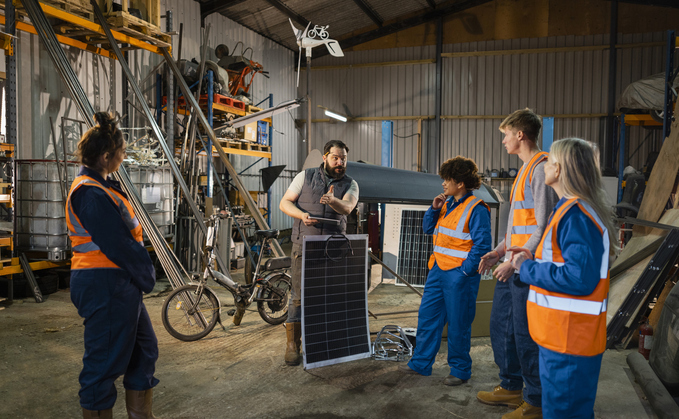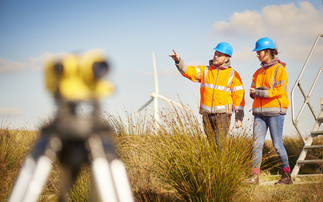Credit: iStock
New research warns green workforce is struggling to keep pace with increased demand, prompting fresh calls for more collaboration between business, educational institutions, and government to tackle worsening skills gap
More than half of environmental professionals harbour concerns there could be a green skills gap in the UK and as a result businesses are underprepared for the transition to a more sustainable net zero emission economy.
That is the headline finding from a new survey based on responses from 1,498 professionals from across the environmental services industry. It found 58 per cent of respondents were worried there is or will soon be a green skills gap which could de-rail efforts to meet national decarbonisation goals.
The National Environment Services Survey was conducted by the Chartered Institution of Wastes Management (CIWM), The Environmental Services Association (ESA), Groundwork, and ESS Expo (Environmental Services and Solutions Expo).
One in four respondents indicated there is a high demand for skills in waste management and the circular economy.
Similarly, 11 per cent of respondents expressed concerns over skills shortages in sustainability and environmental management, while around eight per cent warned of skills shortages around both carbon management and offsetting, and environmental law and policy.
However, the survey also revealed a more positive shift towards organisations prioritising sustainability with a rise in number of senior roles such as chief sustainability officers (CSOs) across the sector. The report said more individuals were hired to senior sustainability roles in 2021 alone than in the entirety of the previous five years.
However, data from ESS Expo suggested while businesses are looking to prioritise these positions, many are still struggling to fill them.
Elsewhere, the survey suggested that technology could likely offer "numerous opportunities" for bridging the green skills gap. As an example, it cited online learning platforms which can deliver specialised green training to a wider audience, while virtual reality simulations can provide immersive training experiences for complex green technologies.
Additionally, the survey said AI could be used to personalise learning pathways and identify skill gaps within a workforce. By harnessing these technological advancements, organisations could equip the workforce with the necessary knowledge and expertise to effectively navigate the net zero transition.
Dr Adam Read, chief external affairs and sustainability officer at SUEZ and member of the government's Green Skills Delivery Group, said that while not unexpected, the results were concerning.
He estimated the resources and waste management sector alone is set to expand from 150,000 to nearly 450,000 staff in just under a decade and in order to prepare for this, the industry must continue to work on improving its attractiveness and up-skilling the current workforce to ensure staff retention.
"There are immense opportunities to rethink engagement and form new partnerships with schools, colleges, universities, and professional bodies," he said. "Key skills in demand lie in technology, design, AI, communications, engineering, policy implementation, regulation, and data analysis, plus of course in recycling, reuse, repair, upcycling, and refurbishment."
Rob Mowat, managing director of ESS Expo, said the survey results make it "abundantly clear" there is a green skills gap across the UK economy.
"As we move forward, we are going to see more organisations increasingly chasing sustainability-related goals, driven in part by a younger generation that is passionate about environmental issues," he said. "However, these objectives will only be met if businesses are able to acquire the necessary green skills. This lack of preparedness could potentially hinder the UK's ability to achieve its ambitious environmental targets and capitalise on the economic opportunities presented by the transition to a net-zero economy."
Mowat stressed it is "crucial" for businesses to invest in initiatives that bridge the skills gap, such as upskilling training programmes, apprenticeship schemes in green sectors, and fostering greater collaboration with educational institutions.
"Together, if we work hard, we can make huge strides in our sector's transformation and reinvention, delivering exciting new skilled jobs that underpin the fight against climate change," said Read.
You can now sign up to attend the fifth annual Net Zero Festival, which will be hosted by BusinessGreen on October 22-23 at the Business Design Centre in London.








